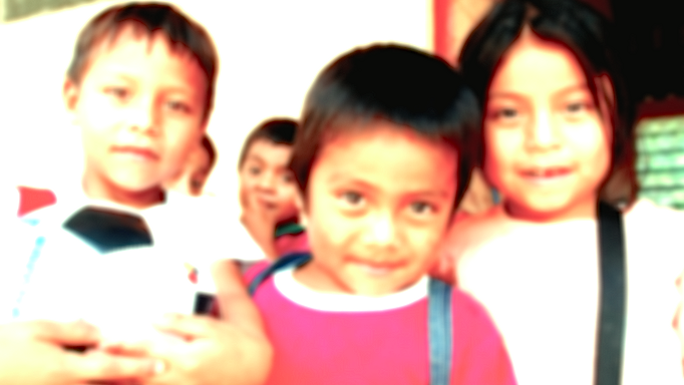Bolster Resilience in Latino/a Unaccompanied Immigrant Children
Bethpage, New York, United States
Over the past several years, the United States has experienced a surge in the arrival of unaccompanied immigrant children (UIC) from Latin American countries, and particularly El Salvador, Honduras, and Ecuador—a region also known as the Northern Triangle. These UIC are commonly sent to the U.S. by their legal guardians to escape gang violence, homicide, drug and human trafficking, decreased economic opportunity, and overall political unrest in their home countries.
UIC by definition have no lawful immigration status in the U.S., are under 18 years of age, and arrive without a parent or legal guardian, or are without a parent or legal guardian who is available to provide care and physical custody. When apprehended at the border, UIC are taken to detention centers or housed temporarily with distant relatives while they await legal hearings in immigration court—hearings which rarely result in the granting of asylum, despite their arguable eligibility for it.
Research suggests that child and adolescent refugees—and particularly those who migrate in the absence of a parent or primary caregiver— are at greater risk of experiencing psychological distress, including depression, anxiety, posttraumatic stress disorder (PTSD), and acculturative stress. At the same time, research also suggests that refugee children and adolescents may exhibit resilience and coping in the face of psychological distress. Unfortunately, little is known about how best to support Latino/a UIC in maximizing their strengths in the face of immigration-related obstacles.
The purpose of this qualitative doctoral research study in Clinical Psychology* is to contribute to the small body of literature regarding resiliency and coping among UIC. Semi-structured interviews conducted in Spanish will facilitate an exploration of the retrospective perceptions of resilience and coping over time of now-adult Latinos/as who immigrated to the U.S. as UIC. Results are expected to shed light upon the process of resilience and related coping strategies unique to this particular population. This will enable mental health professionals to bolster the individual strengths of UIC and improve collaborative support systems across human service fields through a multidimensional approach involving psychology, social work, and advocacy.
In order to make this research possible, investigators are requesting your financial support! Your donations will contribute to the following:
-To thank participants for sharing their experiences, they will be awarded electronic gift cards in the amount of $15.
-Additional funds will contribute to offsetting costs associated with data collection and analysis (i.e., interview-related travel expenses, paying doctoral student researchers for time spent conducting, transcribing, and coding interviews for relevant text, repeating ideas, and themes).
By donating to this campaign, you will help reverse the stigma of criminalization and pathology associated with this vulnerable population. Help us strategically bolster resilience and adaptive coping to improve the futures of UIC in the U.S.
*This investigation has been approved by the Institutional Review Board of Long Island University Post.
Lori McClelland
-
$2,000.00
Funding Goal -
$0.00
Funds Raised -
0
Days to go -
Campaign Never Ends
Campaign End Method
Product Description
Bethpage, New York, United States
Over the past several years, the United States has experienced a surge in the arrival of unaccompanied immigrant children (UIC) from Latin American countries, and particularly El Salvador, Honduras, and Ecuador—a region also known as the Northern Triangle. These UIC are commonly sent to the U.S. by their legal guardians to escape gang violence, homicide, drug and human trafficking, decreased economic opportunity, and overall political unrest in their home countries.
UIC by definition have no lawful immigration status in the U.S., are under 18 years of age, and arrive without a parent or legal guardian, or are without a parent or legal guardian who is available to provide care and physical custody. When apprehended at the border, UIC are taken to detention centers or housed temporarily with distant relatives while they await legal hearings in immigration court—hearings which rarely result in the granting of asylum, despite their arguable eligibility for it.
Research suggests that child and adolescent refugees—and particularly those who migrate in the absence of a parent or primary caregiver— are at greater risk of experiencing psychological distress, including depression, anxiety, posttraumatic stress disorder (PTSD), and acculturative stress. At the same time, research also suggests that refugee children and adolescents may exhibit resilience and coping in the face of psychological distress. Unfortunately, little is known about how best to support Latino/a UIC in maximizing their strengths in the face of immigration-related obstacles.
The purpose of this qualitative doctoral research study in Clinical Psychology* is to contribute to the small body of literature regarding resiliency and coping among UIC. Semi-structured interviews conducted in Spanish will facilitate an exploration of the retrospective perceptions of resilience and coping over time of now-adult Latinos/as who immigrated to the U.S. as UIC. Results are expected to shed light upon the process of resilience and related coping strategies unique to this particular population. This will enable mental health professionals to bolster the individual strengths of UIC and improve collaborative support systems across human service fields through a multidimensional approach involving psychology, social work, and advocacy.
In order to make this research possible, investigators are requesting your financial support! Your donations will contribute to the following:
-To thank participants for sharing their experiences, they will be awarded electronic gift cards in the amount of $15.
-Additional funds will contribute to offsetting costs associated with data collection and analysis (i.e., interview-related travel expenses, paying doctoral student researchers for time spent conducting, transcribing, and coding interviews for relevant text, repeating ideas, and themes).
By donating to this campaign, you will help reverse the stigma of criminalization and pathology associated with this vulnerable population. Help us strategically bolster resilience and adaptive coping to improve the futures of UIC in the U.S.
*This investigation has been approved by the Institutional Review Board of Long Island University Post.
Lori McClelland
| ID | Name | Amount | |
|---|---|---|---|
| 1244 | Listing Agent | [email protected] | |
| 1215 | Listing Agent | [email protected] |







